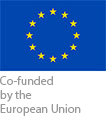Telesales representative on the phone
European legislation stipulates that a trader who contacts you by phone must provide detailed information on the following during the phone call:
- his identity
- the content of his offer
- the terms and conditions of sale
- the contract start date
- the payment method
The seller must provide detailed and comprehensible information on the order confirmation, which must be forwarded using a ‘durable medium’ such as an e-mail or a paper document.
Seller’s identity
When contacting you by telephone, telesales reps must reveal their identity or that of the company they represent at the start of the call. They must also make it clear that it is their intention to sell you something.
Always ask for the company registration number and contact data during a telephone sale (physical and e-mail address and telephone number). Why? This will enable you to check whether the company is based in the European Union, to ensure that you are covered by European legislation, and that you can easily contact them in the event of problems.
Content of the offer
Callers tend to rattle on during a telephone sale. Before making a purchase, make sure that you know everything there is to know about:
- the properties of the product or service
- the total price, including delivery and taxes
- the contract duration and termination conditions
Because a telephone sale proceeds quickly, the caller does not have to provide details about payment and delivery methods during the call.
Be vigilant with ‘free’ offers, particularly if you are asked for your bank details. These so-called 'gifts' are often misleading.Terms and conditions of sale
As a buyer, you have certain rights. During the telephone sale, the seller must provide information on
- your right of withdrawal within 14 days and the rules associated with exercising this right (term, cost and method of return),
- the common legal guarantee and any additional commercial guarantees
Contract start date
In Belgium, you are contractually bound as soon as you approve the telephone sale of a product or service and the corresponding cost. Oral approval is enough.
Some EU countries oblige sellers to put the oral agreement on paper. The contract only starts when you have accepted it in writing or signed it.
Payment method
Never reveal your bank details over the phone, even if the caller insists upon it.
Ask the seller to send you an invoice with payment instructions. Do these instructions refer you to a web page? Check that it is secure. Secure web pages display a padlock or key symbol and start with ‘https’ (s for ‘secure’). Use your credit card, which gives you protection from Internet fraud. In the event of problems, you can ask for a refund from your card issuer.
Payment methods to be avoided at all cost: international money transfers (e.g. via Western Union) and payments via third party payment processors (such as Escrow Services). These services are mostly used by fraudsters!
Did you give your bank details to the telesales rep? There is a risk of a European direct debit being set up without your approval. Find out how to contest a SEPA direct debit.


